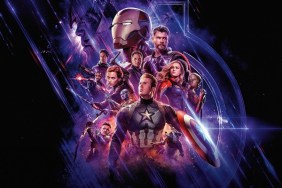What is an indie comic? I think Americans often have the misconception – be it in comics, music, or film – that “indie” is some sort of genre. For example, a band is not indie because they sound a certain way, they are indie if they are signed to an independent record label, or distribute their own music in someway. I recall a moment in film school in which a student blindly asked the professor if the movie Garden State was an independent movie, and when he responded “yes”, she looked confused and declared “Really? Because people were laughing…” Of course, this has nothing to do with anything. Obviously, an independent movie is a film that is made without the backing of a major studio. In comics, the general stigma is that books without superheroes in the pages are indie books. Of course, this isn’t true, as there are plenty of indie books that feature heroic characters, capes and all.
For our purposes, the general rule is nearly anything that is not under the umbrella tree of DC, Marvel, Dark Horse or Image (the big four), is a smaller/specialty press (independent of a large corporation!) book. As such, independent books encompass a wide variety of genres ranging from superheroes, to humor, memoir, and the spaces in between. If you have been looking to find some new and interesting work amongst a sea of uber-events, look no further than the work on this list. The best part is, no matter where you begin, the first thing you find and enjoy, there will be a dozen different places to go to next.
10. Meow, Baby! by Jason

If you’ve never experienced any of Jason’s work, then allow me to summarize for you, with the “About the Author” from Meow, Baby!: “On the day of Jason’s 12th birthday, Elvis died. He lives currently in Montpellier, France. Jason, that is.” I think that alone best categorizes the humor contained within his work. Meow, Baby!, in particular, is a collection of short comic strips featuring Jason’s trademark bird/dog people, mummies, zombies, aliens, and more – all with genuinely clever setups, punchlines, and situational humor.
One particular favorite strip included in Meow, Baby! involves two skeletons out for a smoke break from their caskets, as they discuss Seinfeld and U2, only to realize neither of them get in much pop culture. Ultimately, they deem it time to “head back down”, as though laying in their graves is their profession. This theme is what truly charms me about Meow, Baby!; it takes these generalizations of death or horror – like zombies – and turns them to the point of view of said creature, where they ultimately view their stigma as a day job.
If you’re looking for a quick entry way into the broader world of alternative comics, this is it.
9. David Boring by Daniel Clowes

Words cannot describe the plot of a book like David Boring, a work by Ghost World author Daniel Clowes, which while not as well known as the latter, I find it to be a much more interesting and mulit-layered affair. That, or I could just share a similar obssession with women’s asses that the titular character does, I’m not entirely sure.
Either way, the core of the story revolves around David, his search for both his washed-up cartoonist of a father and his idea of a perfect woman, with a little nuclear holocaust and incestual tendencies thrown in. Along the way, Clowes delivers plenty of sex, a multi-layered narrative that coincides with the old style comic books of David’s father, as well as a string of strange relationships that is eerie to the max, yet oddly realistic in the fashion in which they develop.
David Boring is intriguing because of its curious intracacies, mostly involving the fascinating combination of sexual obssession and impending apocolypse. While the word “accessible” is a garbage, throwaway term, David Boring is not as easy or linear of a read as, say, Ghost World. In fact, Clowes himself stated that one of his goals with David Boring was to create an unfilmable comic book, and after reading it, you’ll see he may have succeeded.
8. Hickee

Hickee is an interesting title and unique to this list, because it is a collection of comic strips from various cartoonists, all of whom get their chance to shine in the many different editions of the book. Featured cartoonists include Graham Annable, Scott Campbell, Vamberto Maduro, Joe White, Nathan Stapley and David Bogan, to name a few.
The styles are vary, from Maduro’s simple cartoon designs and thin inks, to Paul Brown’s R. Crumb inspired high-detail strips, along with everything that falls in between. One thing every strip collected in Hickee has in common though, is they are all hilarious. They range from the sophisitcated high-brow to dick and fart jokes, but all of them are created with heart and spot-on comedic timing.
Hickee is a book you will pick up over and over again, pass along to friends, and reread until the pages are falling out of the binding. It collects the best undervalued talents in independent comics today and lumps them all together for something special.
7. Mouse Guard by David Petersen

Mouse Guard is one of those books that will draw you in instantly, upon first noticing its odd, square shaped figure on the shelf, and then further realizing it has cutie-pie mice with swords on the cover. The story deals with medieval era mice, as they fight to survive their surroundings after surviving a war with a weasel warlord. The illustrious Mouse Guard – once soliders, now closer to scouts – use their skills to seek new, safe passage ways between mice villages, and protect their kind at all costs.
The issues are quicker than a hiccup, and even the collected edition of the entire Mouse Gaurd: Fall 1152 can be read easily in no more than 20 minutes. The real appeal for me when it comes to Mouse Guard isn’t in its themes and literary merit, but purely the artwork. Petersen’s work is beautifully detailed, and honestly one of the best values in comics today. You get pages upon pages of his wonderful work, plus adorabe mice battling snakes and the like. With wee swords. It’s awesome.
Even better, Mouse Guard is perfect for small children. With limited text and reading involved, it’s a great starter comic for your kids. What better way to get your kids started with comics than with an indie book? They will fit right into the hipster scene when they grow up and move to Williamsburg!
6. The Rocketeer by Dave Stevens

Though there would be one Rocketeer issue and collected edition published by Dark Horse in the 90’s, The Rocketeer began as an indie book in the 1980’s, and is unique to our list in that it is the only featured entry that is essentially of the superhero genre. For those of you whose only memories of The Rocketeer are of the Disney film – hold on to them, because the movie is great – but you will be in for a treat to find that The Rocketeer in the funny pages is incredibly similar to the one on the silver screen.
The Rocketeer is a period superhero tale about a young man, Cliff Secord, that discovers himself armed with a rocket pack. Throw in swashbuckling adventure, a Betty Page-like pinup girl, a lot of heart and plenty of comedy – not to mention damn fine cartooning – and you’ve got one of the most ethereal comic book experiences from the 1980’s.
Unfortunately, beyond the Dark Horse collected edition of Cliff’s New York Adventure, there was never any continuation of The Rocketeer’s adventures. Sadly, Dave Stevens passed away just over a year ago after losing his battle with leukemia, and I would say it’s fairly certain that the character being revived under anyone else’s direction with lose a lot of its charm. Thankfully, the small amount of Rocketeer stories that exist are potent enough to last a lifetime.
5. Arsenic Lullabies by Douglas Paszkiewicz

The indie comics scene is chock full of bizarre humor, but none that is quite as politcally incorrect and blatantly offensive as Arsenic Lullabies. Though Little Engine That Could parodies featuring transportation to concentration camps and a child Hitler stuffing action figures into an Easy Bake Oven is obviously not anyone’s cup of tea, Arsenic Lullabies straddles that fine line of offensiveness and absurdity so well that you can’t help but laugh at the scenarios it presents. Furthermore, it works on a whole other level as you realize some of the things you are laughing at are going to send you straight to hell. Luckily, that just makes everything a bit funnier.
Paszkiewicz’s cartooning is top notch. Though many of the strips have the same overall style, some character designs he comes up with are just out there – cows with alien heads, giant donut men, you’ve got it! Some may be offended by cannibalism, stillborn babies, and abusive parental units, but the rest of us can enjoy the depths to which Paszkiewicz will sink for a laugh.
4. Blankets by Craig Thompson

Blankets is one of those graphic novels that has transcended from being a comic to being a mainstream success, both critically and commercially. The book is essentially an autobiography of its author, as he struggles with growing up, his first love, sexuality, and perhaps most important to the story, his spirituality. Though autobiographical graphic novels have become sort of a trend as of late, Blankets is one of the few that explores the author’s use of his artistic ability as an escape for his life struggles, thus resulting in the book the reader is physically holding.
Blankest is genuinely uncomfortable to read at times, but that is really part of its charm. If one can feel the discomfort in the panels and the text, then the reader knows that the author has done his job in being brutally honest, whether the situation paints him in a negative light or not. The main issue that many autobiographical books – comics or otherwise – come across is they become self-indulgent, rather than self-reflective. Thompson is able to deliver his story in a way that shows the reader he’s actually discovered something about himself in writing it, rather than simply giving himself some sort of ego/confidence boost.
3. Fun Home by Alison Bechdel

Fun Home is another memoir piece that, like Blankets, never holds back from displaying the faults of its characters. In this case, though the book touches on plenty of self-discovery issues, the bulk of the narrative focuses on Alison’s strained relationship with her father, who may or may not have committed suicide as well as been a closeted homosexual. All of these things filter into the person that Alison becomes, both in the story and in real life, and create a long lasting graphic novel that hits upon many dark – but common – themes.
Bechdel also uses her vast literary knowledge, using allusions to classic literature as a way to structure her story. Bechdel alludes to James Joyce, F. Scott Fitzgerald, and Marcel Proust, using them to draw connections to the characters in her own life, as well as lending a sort of “legitimacy” to comicdom, at least in the eyes of some critics. Bechdel’s coming out as a lesbian is a primary focus of the book, and the way she intertwines it all with her relationship with her father is genuinely moving.
2. I Killed Adolf Hitler by Jason

The only creator on this list to get two spots, Jason’s I Killed Adolf Hitler is every bit as intriguing as it sounds. What begins as a enjoyable concept on its own – a hitman in a world of hitmen that is sent back in time to 1938 to kill Hitler – turns into a sweet story about finding true love and maintaining it through all obstacles, including time travel. Though Jason uses his signature animal people in the story – all of them nameless – these are characters that are easily identifiable in their optimism for love.
Of course, as one of Jason’s long-form comic works, the punchlines aren’t as immediate as they are in something like Meow, Baby!, but instead the entire piece is laced with an amusing cleverness that lingers long after you reach the back cover. A true romance tale set in a world of absurdity, perhaps it acts as more than just a simple comedic tale. Maybe it’s a tale of hope for love in the crazy world that we live in.
Or, maybe I’m just a sappy fool.
1. Jimmy Corrigan, The Smartest Kid on Earth by Chris Ware

Recently featured on our Top 10 Most Depressing Characters in Comics list, Jimmy Corrigan is also one of the best. Though the book is indeed horribly emaciating, it leaves a lingering feeling that you won’t be able to shake. Ware’s meticulous cartooning plays into the titular character’s anxious personality, as in his middle age he attempts to connect with a father he has never met.
Along the way, Ware offers intensely detailed flowcharts and diagrams that illustrate family trees and character’s relationships, a parallel journey through time that follows Jimmy’s grandfather as a little boy, and bizarre daydream sequences that come from Jimmy himself. The book is pumped full of deep thematics and symbolism, but it is able to work on the surface level as well. Though the plot may seem rather simplistic in comparison to books like David Boring and Fun Home, the depth of character that Ware provides is so immersive that even the happiest, most jovial soul will be able to connect with Jimmy in some respect.
Like Watchmen, Jimmy Corrigan is a book that can be read a dozen times, and every time will lead the reader to some new detail that furthers its effects on them.








